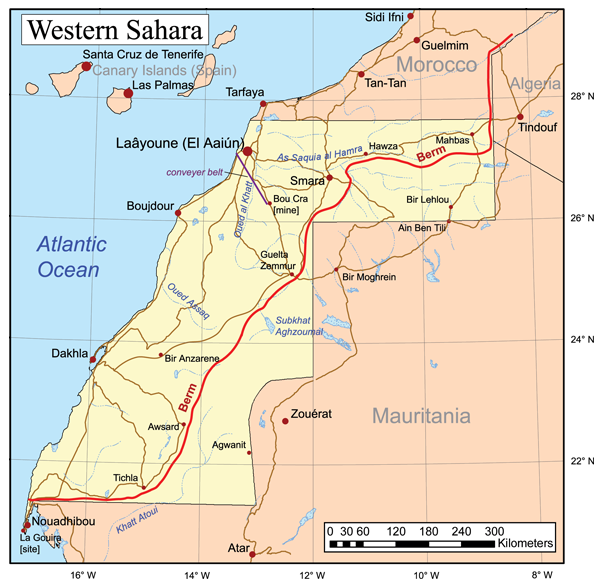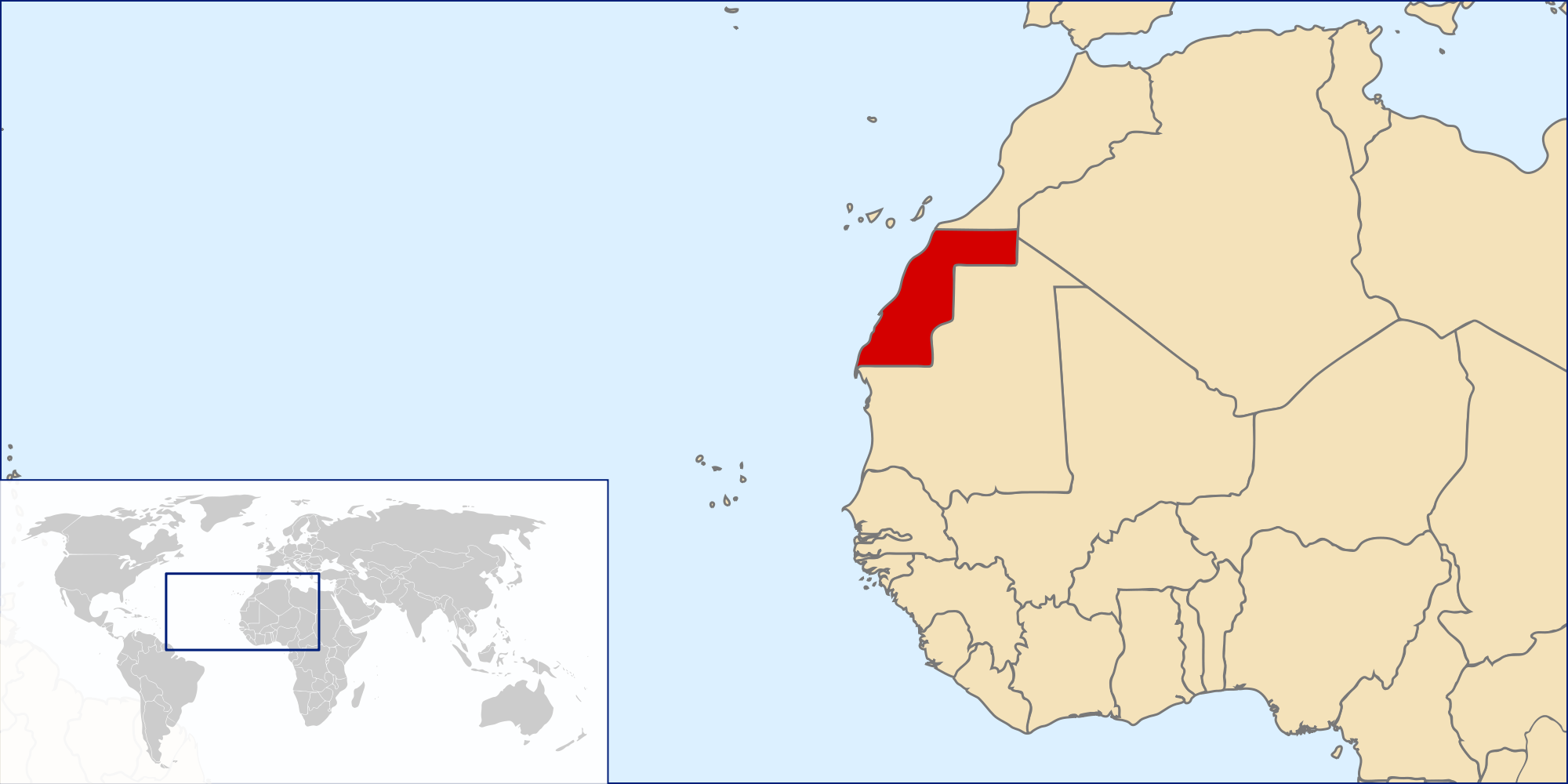When a group of students with a big interest in international politics are making plans for a trip to Morocco, one topic being discussed will for sure be the situation in Western Sahara. The area is located south of Morocco and has been occupied by the country since the 70’s, when Spain decolonized and basically handed over the area to Morocco and Mauritania. Even though there have been several decisions on a referendum regarding independence for Sahara and though Morocco’s right to the area never has been acknowledged by the UN, Western Sahara remains an occupied area. It should also be added that no member of the EU has acknowledged Western Sahara as an independent state.
We had learned that the question is a delicate one to address in Morocco, since Moroccans are being taught from early age that Morocco’s claim on Western Sahara is justified and obvious. Since we did not know if we were going to be able to address the issue at all when in Rabat, in order to at least get a basic understanding of the conflict, we all came together and watched a documentary at Fredrik’s place a week before our trip (this can be read about in an earlier blog post).
Before the trip, I also got in contact with a friend that knows a little more about the situation, since she participated in a group of students trying to reach the city of El-Ayun in Western Sahara in order to raise awareness of the issue. The group never got to El-Ayun, but was instead deported to Agadir. She told me that they then were being kept under surveillance until they left Morocco, to preventing them to get in contact with Sahrawian activists. “The persecution we had to deal with for a few days, people there have to live with all their life”, she wrote to me in a message, and this gave a certain understanding of the gravity of the conflict for the ones affected.

As a somewhat happy surprise, we could speak a little about the situation with some of the international organisations/institutions in Rabat. Generally though, the answers we got was about the human rights situation in the area (which is perhaps the most important and urgent aspect), rather than about the delicate political question of the occupation and the broken promises of a referendum. An example of the difficulty regarding the situation is the international views on the matter of Moroccan jurisdiction in Western Sahara. Right now, there is a trial going in Morocco were Sahrawian activists are being accused for happenings taking place in Western Sahara, and the main defence in the case is that Moroccan authorities have no right to jurisdiction at all when it comes to happenings taking place in Western Sahara. However, as for most political questions regarding the situation, nothing that could be called an answer or a real opinion could be given when it comes to for example Sweden’s view on this topic.
We never really asked someone outside of an office about the situation. We were simply told that religion, the king and Western Sahara are topics that are avoided talking about in Morocco.
This post was written by Max, member of the Rabat 2017 travel committee.
